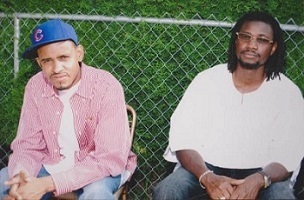REFLECTION
By Cherno Baba Jallow
Ousman “Ous” Kamara and I aren’t blood relatives, but the bonds between us, pardon the cliche, are as old as the hills. They have endured.
Ous Kamara (he is the only one in his family who spells his last name with a K), and I were once roommates in the US city of Detroit and then close neighbours in nearby Southfield, both in the state of Michigan. Our neighbourhoods were a walking distance from each other. But since we are talking about Michigan, where folks just love to drive for any distance, Ous and I often drove to each other’s homes, crossing the Telegraph Road off West 12 Mile.
We would link up during the weekends. We would watch sports, grill some lamb, snack up on fruits and peanuts, and turn ourselves into castaways of the maudlin past. We would go on long recollections about our upbringing, the soccer games in our childhood neighbourhood, the good, old stories, the episodes and personalities that have left lasting impressions on us.
Ous and I grew up in the same neighbourhood in Basse. We are the grandsons of the Jallows and the Camaras, two families that have lived next-door to each other for several decades —- a century isn’t far off.
How and when the two families came to live in close proximity with each other is still something for me to look into —- I haven’t asked about or researched, it yet. All I know is that the two families came from two different shores: mine, (maternal side), came from Dalein, several miles outside of Labe in north-central Guinea. And Ous’s came from Wuli Bantun-N’ding in the northeastern part of The Gambia.
They all resettled in Basse. Both of my maternal grannies arrived in the late 1920s. Probably they found the Camaras already there. Or probably their would-be neighbours were the ones who came sometime later, joining them in residency, in the present-day location once known for its thick bushes, and hyenas often heard howling their way from the nearby riverbanks to the hills of the contiguous areas of Sare Koba and Manneh Kunda.
These Jallow and Camara families are the perfect examples of close-knit neighbours — neighbours, who are each other’s support unit, who love and care for each other, who represent the best of neighbourly outreach and shared humanity.
Our grandmothers Adama Oury Diallo and Koday Camara were the best of chums. Granny, born in the exclusively Pulaar-speaking part of Guinea, spoke no Mandinka, the dialect of the Camara household. But Ma Koday spoke fluent Pulaar. They visited each other, had long chats, exchanged pleasantries and laughed out loud, the bonhomie of two elderly women partaking off some leisurely time together in rural Africa.
Both women loved to cook lots of food. Granny would cook “To-rie” and “Fut-ti,” two popular dishes in her rural part of Guinea. And she would ask me to carry some next-door to her friend. When Granny fell sick with the flu, Ma Koday would prepare her some soup, usually some fish sautéed in spices, lemon juice and thin tomato sauce. Sometimes she would bring it to Granny, walking over through the gate that separated the two homes. Other times she would send Ous or the other grandkids — Balaba or Wassa or Ba Juldeh.
During family crisis, the two friends were each other’s consoler-in-chief. Almost any distress could send Granny into an emotional tailspin. She was wont to be comprehensively anguished over family deaths in her native Guinea. She would wail intermittently throughout the day. Ma Koday would be by her side, consoling her and imploring her to let it go, to reconcile herself to the inevitability of death and to the vicissitudes of life.
Ma Koday and Ma Oury (how the Camaras called Granny) were like the head-representatives of the two families. Their warmth for each other was emblematic of the harmonious co-existence between the two families. From the grannies down on, we all interacted on a daily basis, attended each other’s functions and ran into each other doing errands on the opposite ends of the family homes.
It’s remarkable how these two families, hailed from two different cultures and origins, could get along so well. But then again this is Upper River, eastern Gambia, the land of the Ko’nyaji, the Fulbe, the Mandinka and the Serehule, the land where diversity is a cherished way of life.
As I occasionally traipse around the halcyon days of my upbringing, I am constantly reminded of a childhood steeped in fun and fanfare, enriched by an unshrinking love from my family and from the one next-door: the Camaras. Having good neighbours like them takes pure luck. Or an act of providence. G. K. Chesterton, the English writer and philosopher, told us: “We make our friends, we make our enemies, but God makes our next-door neighbour.”




